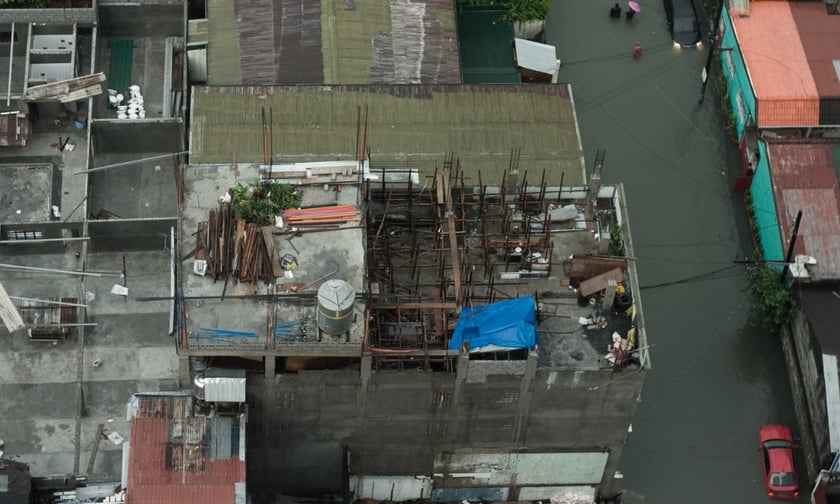

The Philippine Government Service Insurance System (GSIS) has earmarked PHP18.5 billion in emergency loans to support 864,089 members and pensioners impacted by Typhoon Carina and the southwest monsoon in Batangas, Rizal, and the National Capital Region (NCR).
According to the GSIS, members and pensioners in these declared calamity areas can apply for the loans from July 26 to October 28.
The emergency loan program aims to deliver financial assistance to members and pensioners affected by natural calamities. The loans come with a 6% annual interest rate and a repayment term of three years.
“Members and pensioners with existing emergency loan balances may borrow up to PHP40,000 to enable them to clear their previous loans and receive a maximum net amount of PHP20,000,” the GSIS said, adding that those without existing loans are eligible to apply for up to PHP20,000.
To qualify, active members must not be on unpaid leave, have no pending administrative or legal cases, and have made at least six monthly premium payments before applying. Their net take-home pay must be at least PHP5,000 as per the General Appropriations Act.
Old-age and disability pensioners must have a net monthly pension that is at least 25% of their gross pension after loan amortization to be eligible.
Eligible members can apply online via the GSIS Touch mobile app or at GSIS Wireless Automated Processing System kiosks located in GSIS branches, government offices, and selected malls.
The Social Security System (SSS) has also announced that members affected by the typhoon and the southwest monsoon can access its calamity loan program.
Nerissa Sabado, department manager III of SSS member loans department, said the SSS calamity loan carries a 10% annual interest rate. Qualified members include those living in areas declared under a state of calamity by the National Disaster Risk Reduction and Management Council.
The maximum loan amount is PHP20,000, repayable over two years.
“The member should make sure that he/she is an active SSS member, has at least 36 posted monthly contributions, six of which must be posted in the last twelve months before the month of application,” Sabado said.
Applications can be submitted online through the My.SSS account portal.
“The SSS is here to help you with your financial needs. That’s why we relaunched and made available this calamity loan,” Sabado said.
The Philippine Bureau of the Treasury (BTr) plans to file a claim under the National Indemnity Insurance Program (NIIP) for damage to 45 public schools in eight regions due to Typhoon Carina.
It highlighted that the NIIP, initiated on Jan. 1, 2024, offers comprehensive coverage for government assets against natural disasters. This initiative is part of the country’s Disaster Risk Finance strategy, which aims to safeguard government finances, ensure immediate liquidity post-disaster, and mitigate impacts on vulnerable groups.
During its initial phase, the BTr insured 132,862 school buildings nationwide, with a total insured value of PHP843.11 billion.
According to the Department of Education (DepEd), the damage to public schools amounts to PHP308.5 million.
The BTr, in collaboration with DepEd and GSIS, is coordinating the insurance claims under the NIIP.
“The implementation of the program underscores the commitment of the bureau and the Department of Finance to ensure the nation’s financial resilience against disasters. We are actively coordinating with both DepEd and GSIS to ensure the timely assessment and payout of the program,” said National Treasurer Sharon Almanza.
Finance Secretary Ralph Recto stressed the significance of protecting national assets to ensure economic security and underscored the necessity of investing in resilient school buildings to secure the future of students and the country.
“I commend the Bureau of the Treasury for its proactive steps in implementing the National Indemnity Insurance Program. Protecting our national assets is crucial for ensuring the economic security of our people. Damaged school buildings pose a significant threat to this security, as they are the very places where we nurture the potential of our nation’s greatest treasure – our students,” he said.
In other news from the Philippines, Philippine Agriculture Secretary Francisco P. Tiu Laurel Jr. is calling for the Philippine Crop Insurance Corporation (PCIC) to modernise its operations and develop affordable insurance products for farmers, fisherfolk, and livestock raisers.
